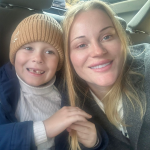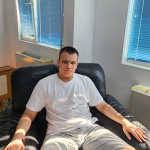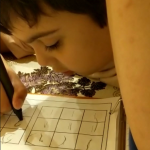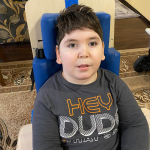Autism and Co-occurring Disorders: How to Identify and Address Them?
Autism itself represents a set of problems unique to each individual, which significantly complicates its diagnosis. At the same time, it can be accompanied by various co-occurring conditions that can also have a substantial impact on quality of life. Naturally, their presence makes both diagnosis and the correct choice of treatment methods even more difficult.
In general, autism spectrum disorders are characterized by difficulties in social interaction, communication, and repetitive behaviors. However, many autistic individuals, who may struggle with specific skills, display a wide range of abilities in other areas of activity. An additional challenge for healthcare professionals is ensuring that these talents do not disappear after corrective interventions.
Autism is associated with a number of co-occurring conditions, but only some are most commonly encountered. These include:
- Intellectual disability,
- Attention deficit hyperactivity disorder (ADHD),
- Anxiety disorders,
- Depression,
- Epilepsy,
- Sensory processing disorders,
- Gastrointestinal issues, etc.
Their presence can deeply affect life, exacerbating existing problems, which require diverse therapeutic interventions and support methods. One of the reasons why co-occurring conditions in autism create significant complications is the presence of common symptoms. For example, anxiety and difficulties with sensory processing may be mistakenly identified as primary signs of autism. Such overlaps often lead to misdiagnosis or delayed identification of a co-occurring condition, resulting in ineffective or delayed correction. Additionally, simultaneous therapy for multiple conditions requires a comprehensive understanding of how they interact and affect daily life.
In this regard, a diverse and holistic approach to autism treatment can play a decisive role. It requires the involvement of specialists from fields such as psychiatry, psychology, speech therapy, occupational therapy, and education. This approach should consider the unique needs of each patient, and only then will it be beneficial.
Not only medical measures but also support from family and society play a significant role. To create an inclusive environment, it is essential to widely disseminate information about autism, its characteristics, and the specifics of related conditions. Implementing such measures will require considerable time and effort, but it will help create conditions where autistic individuals feel comfortable, which is the main prerequisite for stress prevention.
Autism and associated disorders can be overcome more quickly and effectively with the help of cell therapy — the most modern, reliable, and natural approach. It is based on the ability of stem cells to transform into healthy analogs of damaged cells, thereby restoring normal functioning of entire organs. Stem cell transplantation helps stabilize brain and nervous system activity, and the effect is long-term, often lifelong, which increases the success of additional therapeutic measures.
Cell therapy, which has gained widespread recognition, is already practiced in the best clinics worldwide, and in the future, it has the potential to become the primary technology for combating autism and its symptoms. It is also used at the Mardaleishvili Medical Center, which is equipped with state-of-the-art technology and staffed by highly qualified doctors with extensive successful experience. Additional advantages include the relative financial accessibility of the treatment compared to other developed countries and the opportunity to receive assistance at the preliminary stage—during travel planning and accommodation arrangements.
Cell therapy — a chance to not only deal with autism!
Autism Treatment Center Videos
Autism treatment with own stem cells
Cord blood association congress
International Quality Crown
Autism Treatment Reviews
Autism treatment with own stem cells
The story of Alessandro (6 years old)
Autism Patient Testimonial - Stem Cell Treatment
Clients Testimonials

Feedback from Igor, David’s father (12 years old) Read More

Feedback from Olga, Fedya’s mother Read More

Feedback from Natalia, Radomir’s mother (15 years old) Read More

Feedback from Esther, Samuel’s mother (8 years old) Read More

Feedback from Abibe, Selim’s mother (7 years old) Read More












